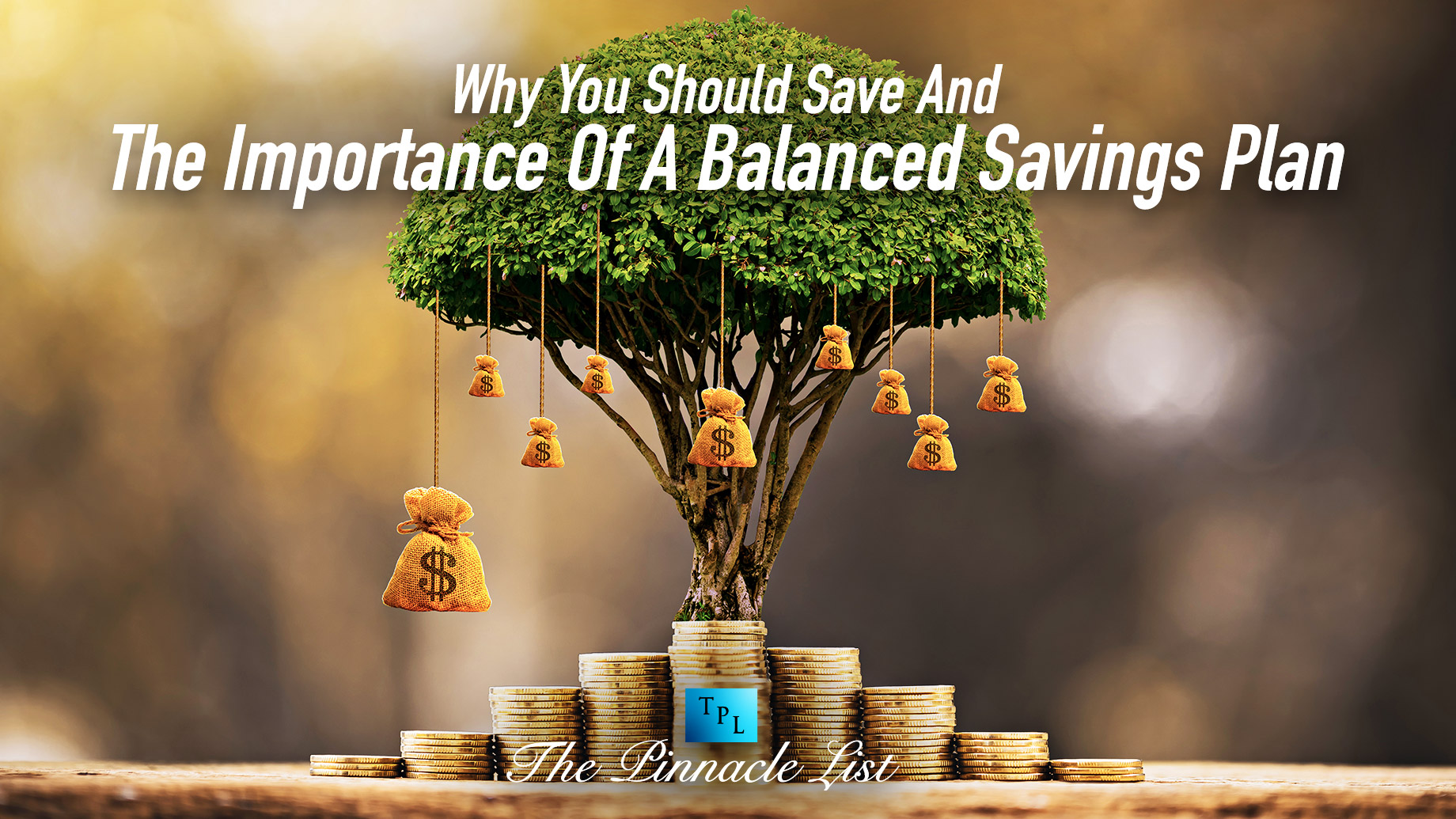
You have plenty of opportunities to save money, ranging from ISAs to pension plans. If you’ve already started saving, that is terrific news. However, are you aware of the importance of having a balanced savings plan?
Ensuring your savings are balanced will help build your funds. Ultimately, it will allow you to prepare for your future while enjoying the present. It is critical to plan for your long-term future; when evaluating your pension, seek experienced assistance from a specialist such as Portafina.
Why should you save?
This question is one many people ponder, especially during periods of economic uncertainty. However, money plays such a crucial part in our lives, so having some in reserve enables some financial freedom.
How should you save?
Spending money is generally more fun than saving it. However, by following a few straightforward principles, you can make saving become a sustained and manageable habit.
1. Be realistic about your goals
Everyone has different income levels and spending habits. Consequently, your savings goals should be based on your situation rather than trying to match someone else’s. Setting unrealistic savings goals can be damaging, as failing to achieve them may deter you from continuing to save.
2. Save little and often
Saving small amounts regularly is better than trying to set aside large sums. Even though you might not see your funds growing rapidly, it has significant benefits. Firstly, it will help you develop a lasting savings habit. Also, these small sums will soon accumulate to a substantial amount of money.
3. “Tighten your belt”
You will never be far from the temptation to spend money. Nights out, attending events, and hanging out with friends all cost money. Of course, you don’t want to become a hermit, so you’ll have to spend some money socialising. However, try to “tighten your belt” by using comparison sites or searching for vouchers and discounts.
4. Use money pots
Keeping your money in separate “pots” makes it easier to manage. It also helps you save, as you can isolate these funds to avoid spending them. We’ll discuss money pots in further detail a bit later.
5. Adopt the pay-day savings principle.
People often quit saving because they don’t have any money left to keep at the end of the month. Suppose you could guarantee to have funds available to save. You can do this by adopting the pay-day saving principle. With this, you put your savings into a separate account as soon as your pay arrives, so you’ve no chance to spend it.
More on money pots
We mentioned the benefit of money pots earlier. Here are a few different ones you should consider:
Everyday pot
You can put sufficient money in this pot to cover food and daily living expenses. As you need it daily, you should keep it somewhere with unlimited access, such as a current account.
You might choose to subdivide this pot further. For instance, you could have separate pots for food and commuting. Online banking apps make it easy to establish multiple accounts and move money between them.
Short-term savings pot
A dedicated savings pot will make establishing a lasting savings habit easier. You should look for an account with a reasonable interest rate. However, if you think you might need immediate access to these funds, you should understand what notice is required. Some accounts restrict access or limit the number of withdrawals you can make.
Emergency pot
You might consider this pot as a form of savings. However, keeping it separate from the money you’re saving for more pleasurable things makes sense.
Your emergency pot is designed to cover unforeseen events such as car repairs, replacing broken appliances, or temporary lapses in employment. Your emergency fund should be sufficient to sustain your living expenses for at least two months. However, don’t be too concerned if you do not have this amount immediately. You can build it up over time.
Retirement pot
A significant proportion of your retirement party pot will likely be a personal or workplace pension scheme. The good news is that if you are employed, you will probably have at least one pension plan.
The current qualifying criteria for workplace pensions is that you are 22 years old or over and on a salary of at least £10,000 per year. 4% of your gross income gets paid directly into your pension pot. Your employer contributes another 3%, and tax relief makes up 8% of your salary’s value.
As final salary pension schemes have become less available, workplace and personal pensions are taking on greater significance. Final salary schemes were considered the gold standard of pensions. However, they were costly to run. Therefore, most companies have discontinued them.
Another part of your retirement pot is your state pension. This benefit pays a maximum of £179.60 per week, equivalent to an annual salary of £9339.20. You should carefully consider if this amount of money is sufficient to sustain your retirement lifestyle on its own. If not, you will have to put other income provisions in place for when you resign.
Finally, you should understand that not all pensions are the same. They all come with management charges, which can vary significantly between pension providers. Also, their performance history will differ. If you feel you are paying too much in management charges or your pension plan could be performing better, you should discuss your options with a regulated financial advisor.